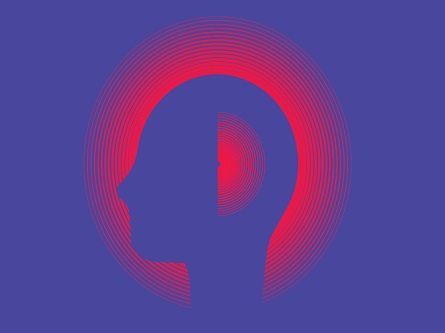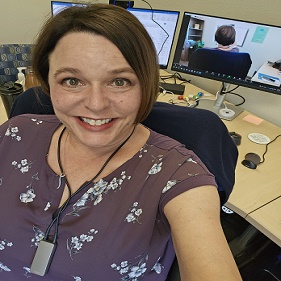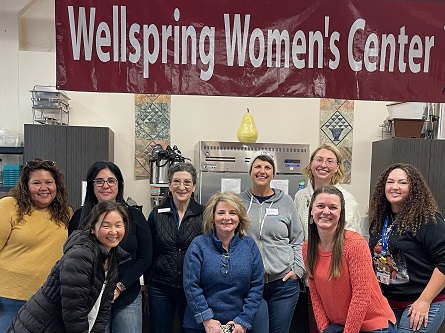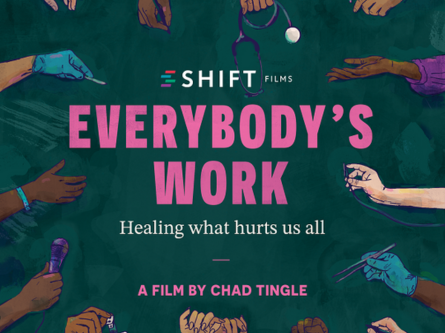By Jenny Carrick
Marketing and Communications Director
UC Davis, Enrollment Management and Undergraduate Education
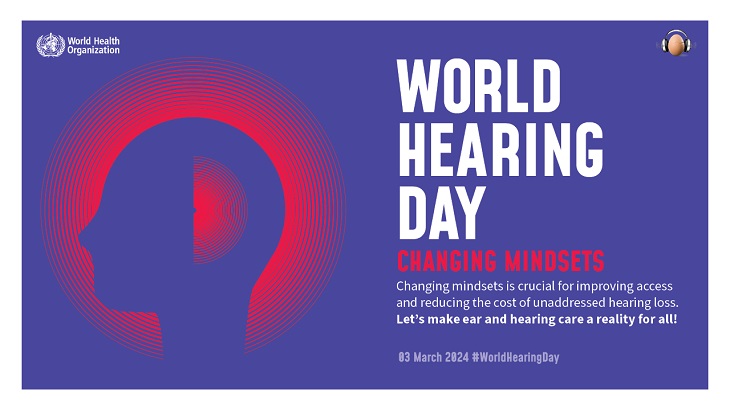
When you attend an event in person, whether a meeting in a conference room or larger event, such as a keynote session at an academic conference, it’s pretty likely there will be someone with disabling hearing loss in the room. And there’s a strong chance that person doesn’t use a hearing device.
According to the World Health Organization, over 5% of the world’s population requires rehabilitation, such as hearing aids, to address their disabling hearing loss. This number is expected to double by 2050 to over 700 million people – or one in every 10 people.
Sadly, worldwide, only 17% of those who could benefit from the use of hearing devices actually use one. Access to hearing health care is a big barrier both in the U.S. and throughout the world. Additionally, in the U.S., hearing devices are not routinely covered by health insurance. Exasperating the issue are the many myths and stigmas that surround hearing aids and hearing loss; such as hearing aids are big, bulky devices that make a lot of noise and don’t really help.
The impact of unaddressed hearing loss doesn’t just result in annoyingly loud TVs and repeating, “What?” several times a day. Unaddressed hearing loss leads to isolation, less engagement, loneliness and even dementia. It can also impact immobility.
As someone living with hearing loss and using hearing aids, along with other assistive devices, I’m happy to share that there are many things we all can do to destigmatize hearing loss and be advocates for those who are hard of hearing. As an employer, the University of California steps up to the plate by providing hearing aid coverage and workplace accommodations.—Jenny Carrick
How to be hearing loss friendly [PDF]
Now, as coworkers, colleagues, mentors, health care providers and educators, we can take the next steps. One simple way is when planning gatherings or events, plan for attendees who are hard of hearing. Don’t wait for them to self-identify – the statistics show to expect it.
Microphones
Use them. Insist others use them. If an event room has access to microphones just use them. There will always be those who say, “oh, my voice carries so I don’t need to use a mic.” Wrong. Regardless of your voice, there is someone who probably cannot hear you. And, when you don’t use a mic, do you think the person speaking after you will use it?
Assistive devices
Does your event space offer assistive devices for those with hearing loss? These devices are easy to use for most of us with hearing aids and making it clear where we can access one is really appreciated.
Settings
Try to plan activities in rooms with quality acoustics or other methods of reducing background noise. Even those with normal hearing are challenged in noisy environments. In situations like that, I easily drop out due to “listening fatigue.” I cannot sustain constantly focusing on understanding over a long period of time.
Captions
If captions are available, please use them. Whether video or Zoom, captions are a simple way to include everyone.
Don't say...
Try to avoid saying, “I’ll tell you later,” when asked to repeat something. Don’t respond to a request with, “Oh, aren’t you wearing your hearing aids today?” Better yet, don’t’ advise someone with hearing loss to “sit up front.”

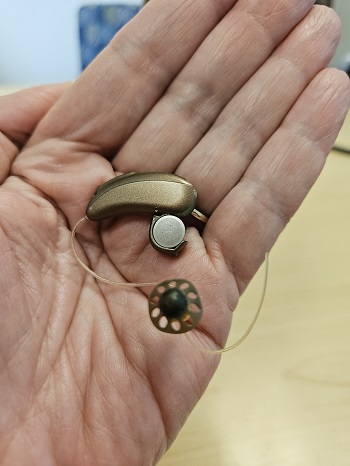
Over the years, as I work to grow awareness about hearing loss among my family, friends, coworkers and events with thousands of attendees; I find myself moving from frustration and even anger to a place of amazement and wonder. I’m blown away by continued advances in technology that allow me to enjoy the TV, a concert, a conversation in busy restaurant, or even a panel discussion at a conference. I’m grateful to those who are eager to learn more from me and I relate to the many who ask why I chose to wear hearing aids or how to access them. Advocating for those with hearing loss helps people address hearing loss and also contributes to reducing later resulting health risks.
Learn more about World Hearing Day. If you want to reach me directly, please email me at jacarrick@ucdavis.edu.

